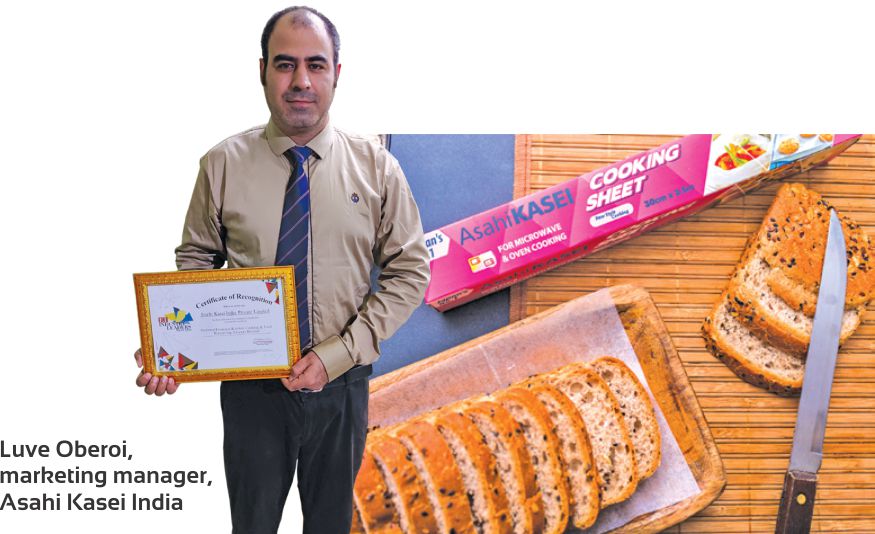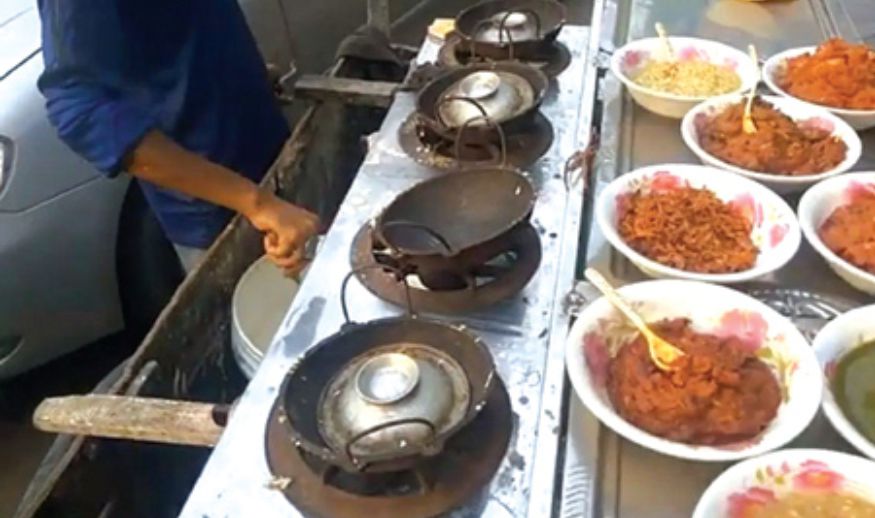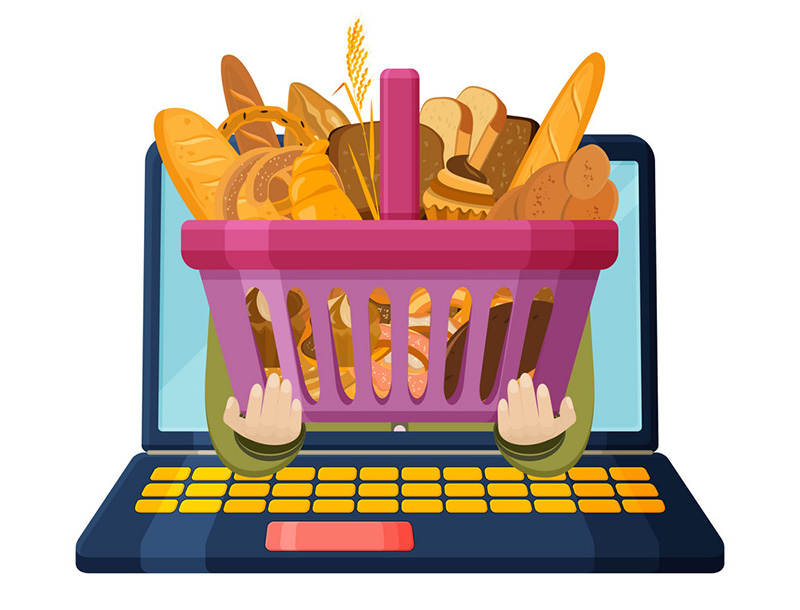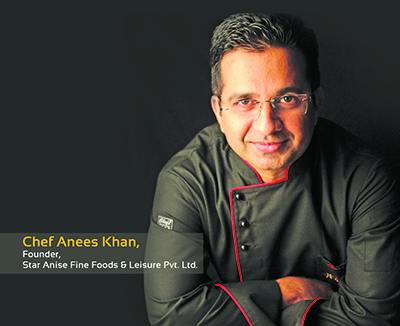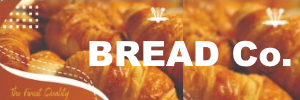Bakery Biz, July-August, 2021
Oven, every kitchen’s superhero, has been instrumental and continues to play a crucial role in the food industry. BakeryBiz speaks to some of the industry leaders to get an insight into the segment’s growth and the way forward.
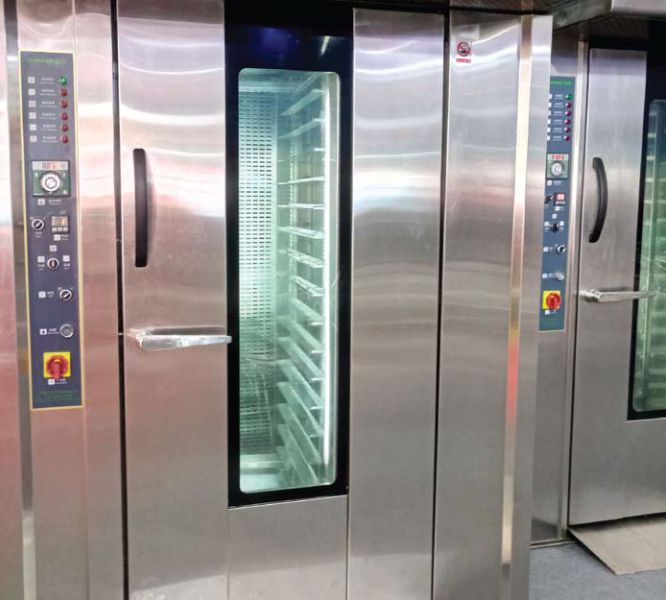

“Following the lockdowns and COVID-related disruptions in 2020 and 2021, most people have been feeling the need to adopt a higher degree of automation and reduce dependence on manual processes in bakery plants.”
The food industry in India has gone through a tremendous change, primarily owing to the evolution in technology and changing eating habits of people. Oven, every kitchen’s superhero, has been instrumental and continues to play a critical role in the food industry. The increased inclination of people towards readymade food, primarily due to the convenience factor, has given a rise in demand for industrial ovens. The oven market is driven by the rising disposable income, increasing demand for ovens due to their baking technology, rising preferences of ventless ovens, a stipulation of advanced products with increased operational competence and foolproof product and changing lifestyle of the people.
With the rising popularity of all healthy, organic and natural baked products, and bread, the demand for baking oven is bound to increase (as has been seen), as bakeries tend to increase their manufacturing facilities which is also heightening the overall demand for baking oven market. While there are many players in the Indian market, we are hereunder providing responses of a select few, who chose to respond to our questionnaire.
Key Trends
Product innovation and technological advances are the keys for any industry segment to flourish. Traditionally, such innovation and adoption of technology and automation in the bakery industry have been slow in India. However, with greater global exposure and cost-rationalization of these new technologies, Indian bakeries are increasingly becoming aware of emerging trends in the global markets, be it on the product side or automation in the manufacturing process.
“Following the lockdowns and CO VID -related disruptions in 2020 and 2021, most people have been feeling the need to adopt a higher degree of automation and reduce dependence on manual processes in bakery plants. Replacing the manual handling process with the use of conveyor belts is one such example of increasing automation in a traditional bakery plant in India. Furthermore,
with tightening pollution norms and the rising cost of diesel, our ovens are now increasingly fitted with gas-based burners, with gas being relatively greener and cheaper fuel than diesel,” stated Pritul Jain, Director, Pritul Machines.
“Delivering good quality consistently continues to be the biggest challenge of the foodservice industry in general and the bakery industry in particular. Emanating from that, the new trends are centered around automation via administration of steam and precision in bake times. Knowledgeable customers, whilst seeking a ‘value for money product’ are no longer succumbing to a pure price play’. Therefore, a focus on energy efficiency, durability, reliability and serviceability continue to find a strong favour,” said Neeraj Seth, Managing Director, Trufrost Cooling Pvt Ltd.
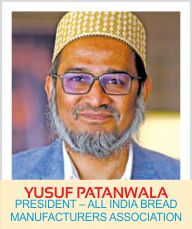
“The main challenge is the upfront investments or high initial costs that the baker has to put in. Considering the markets are not stable, customers shy away from making heavy investments in this direction.”
Yusuf Patanwala, Founder and CEO , Autobake Productions, represents Tagliavini in India, which was founded in 1934 in Italy, and is a leader in producing high-quality baking solutions for artisan bread bakers and confectioneries. The company has been a leading producer of combination (dual convection and deck ovens), convection, deck, rack and tunnel ovens. “Tagliavini’s main focus over the last two years has been on data interconnection in order to speed up and increase the potential of our various laboratories, oven management activities and their equipment. To this end, we are proud to present the brand-new SMART TOUC H control units, an effective prospect for the future. From design to data processing, it is now possible for customers who choose TA LIA VINI to improve their own business by being able to count on maximum efficiency in terms of consumption and organisation. The introduction of our SMART TOUC H MANA GER digital platform will, in fact, increase the potential of ovens and chambers through the implementation of new computer systems with remote laboratory organisation (tutorials, recipes, graphics, online assistance and many other functions). With the new SMART TOUC H control units we will be able to guarantee optimisation of the entire production laboratory, where all equipment will be interconnected and managed directly from a PC or Tablet,” highlighted a company statement.
“Our ovens/devices need to be connected and some interconnected for centralised control, measurement, maintenance and improvement. Remote maintenance devices are now inbuilt in higher-end ovens for troubleshooting purposes. Secondly, energy saving is definitely something to look at because certain good quality ovens give a saving of at least 40 per cent over poorly designed and manufactured ovens. Huge cost savings here,” informed Yusuf.
Local or imported – How difficult is the choice for the baker?
The question of importing goods from international companies only arises when quality products are not available in local markets. “Bakers in India have a wide choice of ovens available at different price points with a wide variety of features, automation, type of technology, energy source viz., electric, gas or diesel. The locally-made ovens are obviously way cheaper than the imported ones,” informed Neeraj.
“For many popular bakery product categories that are sold in India, local machine manufacturers like us have been rapidly acquiring new manufacturing technologies and design aspects from European and USA markets. This has certainly bridged the gap between local and imported machines as far as quality is concerned. As for pricing, local made machines remain far cheaper than imported European or American machines. Some products from Chinese manufacturers may be price competitive to import but from the experience of our customers, we have seen that on a longer-term basis, the overall cost of machines turns out to be higher due to slower maintenance process and opportunity cost resulting from lost production and sales. Moreover, a local manufacturer which has an established after-sales service network will always have an edge over a distributor who typically acts as a dealer and provides basic maintenance services. So, for an ‘informed customer’ the choice is not very difficult to make,” asserted Pritul.
“We operate on an international scale and can guarantee maximum efficiency in terms of customer care, personnel skill and assistance for every request. As already mentioned, we are currently witnessing a momentous transition where each activity connected with the equipment will be managed online with remote technical assistance. Moreover, we have been growing together with bakers and confectioners for almost a century now. We are also often asked for advice on how to prepare products in the best possible way according to customer requests, in order to relaunch their product with a more authentic recipe. Our experience is in providing perfect baking at the lowest market costs for every type of oven,” elicited the Tagliavini statement.
“The initial upfront investment in European ovens is almost 3-4 times compared to local ovens, however the return on investment for a customer using the oven 20 hours a day daily is less than 3 years,” informed Yusuf.
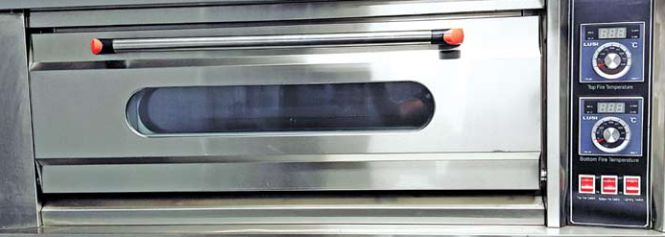
What stands out?

“Delivering good quality consistently continues to be the biggest challenge
of the foodservice industry in general
and the bakery industry in particular.”
Reliability, cost-effectiveness, the right kind of service level support and convenience are some of the factors that make one company stand out over the others. “From day one, our focus has been on providing our customers with a total package. What we mean is the following – a machine that is cost-effective to purchase, to operate and to maintain. We do this by employing top-quality components, adopting designing aspects and technological advances from European machines and making ovens fuelefficient. We also take pride in our vast and geographically well-spread aftersales service network. This ensures that our customers have minuscule worries in running and operating their machines due to fewer breakdowns and loss of production days,” informed Pritul.
“Butler Bakery Equipment is positioned as a value for money option for seasoned bakery professionals. To use the automobile industry analogy, we are neither a Mercedes or a Tata Safari; our equipment is positioned as a Honda City or Hyundai Creta – equipment that you can rely upon, will not burn a hole in your pocket and yet give you years of trouble-free service,” quoted Neeraj.
If one has to judge by the years of presence across different markets, Tagliavini is unquestionably synonymous with reliability while offering a range of products. Cost with the duties added, when imported into India, is another story.
Wood-fired, electric or gas?
The leading choice of bakery professionals remains electric and gas ovens. “Wood-fired ovens happen to be a small niche market. The bulk of the ovens sold in the market are actually electric and gas,” informed Neeraj.
While there has been a ban by local pollution control boards on the sale of wood-fired ovens in many big cities, it has not majorly impacted their demand. “We have not seen any major impact on wooden oven demand,” said Pritul. On the contrary, talking about the impact, Yusuf asserted, “yes, the move definitely has led to more customers now looking for rack ovens.”
Market challenges
Information dissemination and educating the bakers about the benefits of technological advancement is perhaps the biggest challenge faced by oven manufacturers. Besides this, the issue of availability and cost escalation of raw material is also a challenge, that leads to high machinery costs.
“The main challenge is the upfront investments or high initial costs that the baker has to put in. Considering the markets are not stable, customers shy away from making heavy investments in this direction,” said Yusuf.
“One of the major challenges we as manufacturers face is the high cost of raw material compared to global markets, including metallic parts and electronic components. Secondly, CO VID-related disruption exhibited what a sub-optimized supply chain could do to the overall production and inventory planning process. Although the Indian government has been doing its best to remove these hurdles, all involved stakeholders need to put coordinated and dedicated efforts to make India a true manufacturing hub,” asserted Pritul.
“Ignorance of what good quality equipment is and what it can do to improve the productivity of bakeries is a challenge of sorts but it is something that presents a great opportunity to marketers like us. We have set up a series of Trufrost-Butler Experience Centres in various cities and a Culinary Centre in Gurgaon to enable prospective customers to make a more informed purchase decision,” informed Neeraj.
“We at Tagliavini remained steadfastly at the side of the small craft bakeries, focusing on a series of priorities, including continued investment in technology and reliability. We have continued to meet the demands of our customers and all those showing interest in our ovens. The company launched a series of activities that have allowed it to grow in terms of brand awareness, presenting itself in a structured and professional manner on all the main networks, with the aim of arousing the interest of every reference target,” stated the company statement.
Outlook for the future
“Food and bakery business is here to stay, the pandemic notwithstanding. Ovens of all kinds would therefore continue to have long-term prospects. And those brands that address the aforesaid challenges will have a sparkling future,” asserted Neeraj.
“The packaged and convenient food industry (such as bakery products) should continue to see a greater shift in demand in their favour given work from home and stay at home become the new
normal. And for bakery manufacturers, technology remains at the heart of tapping this opportunity. There could be a huge supply gap if the adoption of automation in the production process does not keep up pace with rapidly rising demand. Therefore, we expect a gradual consolidation in the bakery industry towards large and automated production plants to satisfy the growing need of Indian consumers,” informed Pritul.
“We think it is the right time to invest. This may sound absurd at this particular moment but procuring advanced technology will equip us to respond promptly to the constant innovations that the market demands. Professional bakers and confectioners face a great many challenges on a daily basis, not least of which is having to adapt to the working methods dictated by the current health
emergency. To this end, Tagliavini has continued to invest in human resources, research and development. The goal is to offer the best possible service to our customers, which is not limited to the indisputable size and versatility of our range, but also involves listening carefully to their specific requirements, in order to provide solutions for the most varied working needs. Custom-tailored solutions and guarantees of success, thanks also to our extensive customercare network, staff training and the provision of technologists who constantly ensure optimal use of all Tagliavini equipment,” stated the company statement.
Conclusion
The baking market is only going to grow, and so will the demand for ovens, especially in a nation like India where the consumption levels are still growing substantially. The manufacturing segment needs to continue thinking about the bakers and ways to ease their process while continuing to provide quality products and minimising costs. Quality and convenience with an eye on costs would hold the key to their growth.



